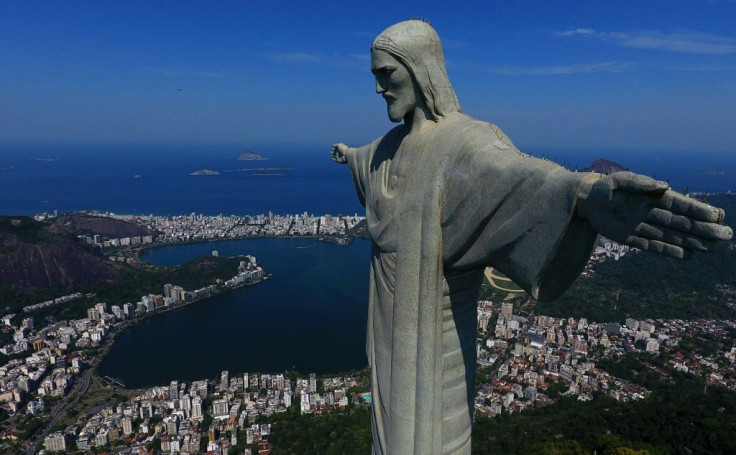Rio Mandates Vaccines For Tourist Spots, Public Spaces
Rio de Janeiro announced Friday it will require proof of vaccination against Covid-19 to enter public spaces including movie theaters, stadiums and iconic tourist spots like the Christ the Redeemer statue and Sugarloaf Mountain.
Starting September 1, Brazil's tourist capital will require a "health pass" for a range of places also including museums, gyms, theaters and conference centers, Mayor Eduardo Paes told a news conference.
Restaurants, bars and shopping centers however will not impose the requirement.
"We're going to make things difficult for those who don't want to be vaccinated," Paes said.
Foreign visitors will be allowed to present an international health pass, he said.
Rio, a city of 6.8 million people famous for its beautiful beaches and breathtaking views, has seen a surge of coronavirus infections recently because of the Delta variant, said municipal health secretary Daniel Soranz.
The city has registered a total of 30,000 Covid-19 deaths.

Around 87 percent of residents over the age of 12 have received at least one dose of vaccine against Covid-19, with 42 percent fully vaccinated.
Paes said part of the goal was to encourage people to get fully vaccinated.
"Our objective is to protect people who believe in science," he said -- widely read as a barb directed at far-right President Jair Bolsonaro.
"And also to make people get vaccinated. It's inconceivable for people who think they're protected without the vaccine to have normal lives. They won't," Paes said.
Rio is betting on widespread vaccination and soon-to-be-launched third vaccine doses for vulnerable populations to bring back beloved events such as its annual carnival celebration, the world's largest, which had to be canceled this year because of the pandemic.
Brazil, a country of 213 million people, has registered more than 577,000 Covid-19 deaths, second only to the United States.
© Copyright AFP {{Year}}. All rights reserved.





















